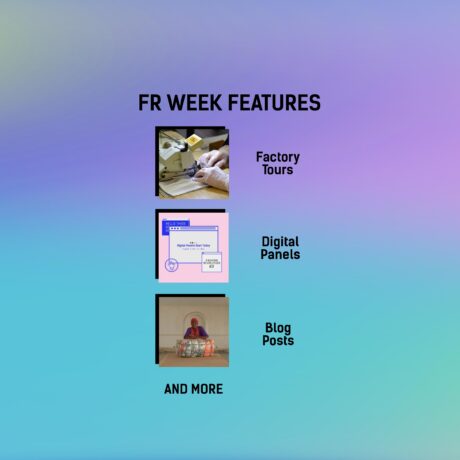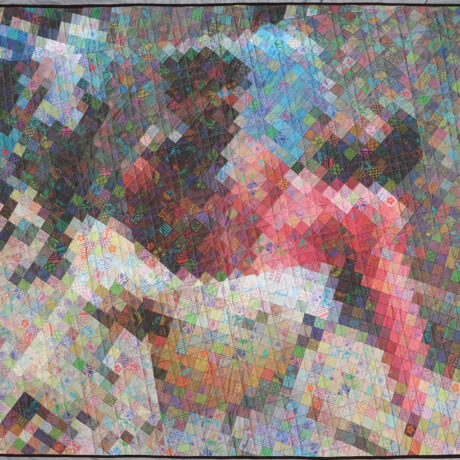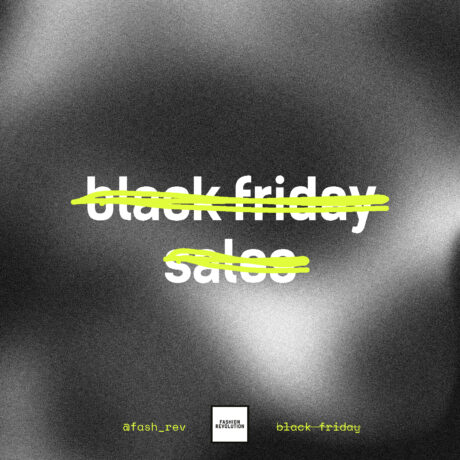We Can All Be Agents of Change
The True Cost
I have spent the last decade working within the fashion industry to improve working conditions of the millions of young women you make our clothes. Once you’ve seen it, you can’t unsee makers losing their lives in unsafe buildings in Pakistan and Bangladesh, being shot at in Cambodia when protesting for better wages and landfills in Haiti filling up with donated clothes.
When Rana Plaza fell down in Bangladesh two years ago, it was the biggest industrial disaster of our times. Those of us working on the inside wrung our hands in despair as the death toll continued to climb past 1,100 people. Unlike tragedies in years past, from this dark place came hope and a number of heroes who said, no more.
There was Better Work, a program that expedited its entry into Bangladesh to provide a credible snap shot into factory conditions. There were slow fashion entrepreneurs such as the founders of Tripty and Visible Clothing who dreamed up clothes that respected people and the planet. There was Orsola and Carry, who built the Fashion Revolution on Rana Plaza’s anniversary, where millions of shoppers around the world asked “Who made my clothes” – the campaign become the number one trend on Twitter.
I founded Remake, to sustain this interest from shoppers to be more conscious and change the story of how our clothes are made. We are betting on the power of films, visual storytelling and immersive journeys to build human connections between shoppers and the amazing people who make our clothes.
One of the heros of this story is Andrew Morgan, a filmmaker who knew nothing about the fashion industry. Getting coffee one morning he happened to glance at the NY Times and was profoundly impacted by the unfolding death and destruction caused by the collapse of Rana Plaza, the biggest industrial disaster of our times.
And so started his quest to create the powerful documentary True Cost, a deep look into how we sacrifice human beings and our planet in the name of fast disposable fashion. You can stream True Cost and we promise it will move you. In multiple screenings organized by Remake there has not been a dry eye in the room.
Most recently 250 fashion design students at Parsons New School of Design – home to the likes of Donna Karan and Tom Ford – got to see the film and talk to Andrew Morgan. After the screening, the Remake team’s cameras were rolling to catch fashion design students’ raw reactions on the film.
Here’s what we learned.
Fashion students can be agents of change
Aspiring designers enter the field because fashion is fun, playful and creative. What we wear defines who we are and how we feel.
Yet the making of our clothes is mostly outsourced to far away countries, leaving those dreaming up and buying fashion to often be removed from the human beings and communities directly impacted by their decisions.
This screening reinforced for Remake that fashion students can also be the heros of this story. They are the ones who can change the tone and nature of the industry.
As Timo Rissanen, Assistant Professor of Fashion Design and Sustainability, Parsons said,
“In ten years from now, they will be in design leadership positions in companies and they will have some power and some say,”
And they want to make a difference.
Student reactions ranged from disbelief: I had never thought about this, you mean robots don’t make our clothes?
To feeling connected to makers: many wanted to talk about Shima, the young Bangladeshi maker featured in True Cost who let Andrew and his cameras into the factory where she worked, her home and to meet her daughter who she hopes has a better future than her. Students felt an instant connection to her, because she is the same age as them, with hopes and dreams that are no different.
To being moved to be agents of change: just like Andrew could not stop thinking about Rana Plaza and decided to use his storytelling skills to shine a light on the True Cost of fashion, every student we spoke to wanted to be a part of the change, both as a shopper today and a designer tomorrow.
Shanley Mitchell, a student at Parsons summed her classmates sentiments beautifully,
“What is the true cost? It’s not worth it when you buy something, and it’s at the cost of someone’s life or the environment. We only have one earth. I really just want to be in this space where I can contribute as much positive change as possible.”
It all starts with awareness. So go on watch True Cost, screen it on campus, check the labels in your closet and start to ask questions both in class and in stores. We would love to hear how you hope to be an agent of change.








